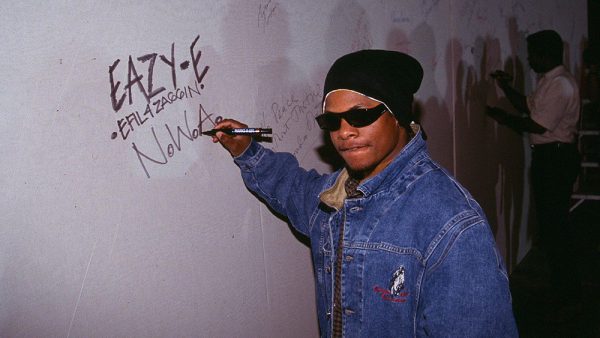
On this day in 1995, gangsta rap pioneer Eric “Eazy-E” Wright succumbed to complications from AIDS, less than 10 days after publicly revealing his diagnosis.
Few figures in hip-hop history embody the essence of gangsta rap quite like Eazy-E. While artists like Schoolly D and Ice-T helped lay the foundation, it was Eazy-E, alongside N.W.A., who took it to an entirely new level. A true entrepreneur, Eazy’s success wasn’t just limited to rap; his business instincts ensured he would have made money regardless of the industry.
In 1986, Eazy-E teamed up with Jerry Heller to launch Ruthless Records, reportedly investing up to $250,000 of his own street-earned money to fund the label. As Heller later detailed in his memoir Ruthless, Eazy maintained 80% ownership of the company, a rare power move in the music business at the time.
“Yeah, I was a brother on the streets of Compton doing a lot of things most people look down on, but it did pay off. Then we started rapping about real stuff that shook up the LAPD and the FBI. But we got our message across big time, and everyone in America started paying attention to the boys in the hood.”
Through Ruthless Records, Eazy-E introduced Dr. Dre and Ice Cube to a national audience, helping shape the sound and culture of West Coast hip-hop. Their vehicle? Gangsta rap. With raw lyrics and unfiltered storytelling, they painted a vivid picture of life in the streets—tackling gang activity, crime, racial discrimination, police brutality, and the struggles of Black communities during the Reagan-era crack epidemic. This uncompromising approach cemented Ruthless Records, N.W.A., and its affiliated acts as hip-hop royalty.
Nine years after the label’s creation, the world lost Eazy-E. Though his time was cut short, his legacy remains untouchable, forever woven into the fabric of hip-hop culture.